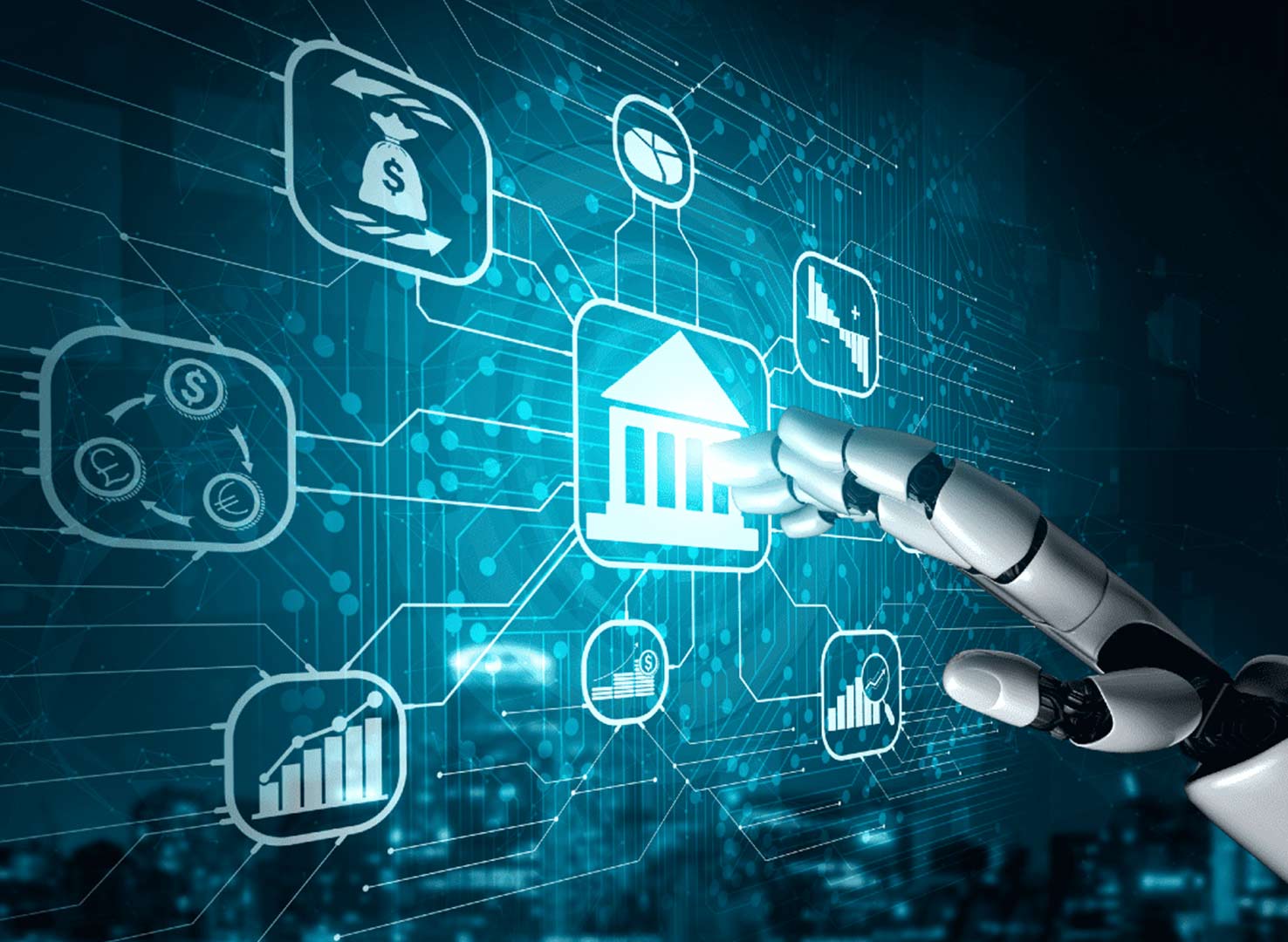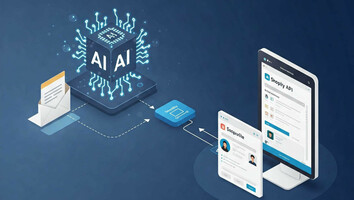With the number of technologies increasing day by day, it is noticed that Artificial Technology (AI) is acting as a trigger for the technology world, as it is the future of ever-growing technology. It is AI that has made it possible for machines to learn from experience while adjusting to new inputs and performing tasks similar to humans. Although AI has played a vital role in different sectors, the applications of AI in the banking and finance sectors have been remarkable.
AI plays a significant role in the banking and finance industry, as availing of AI services allows it to run smoothly, securely, accurately, and efficiently as compared to human beings. This technology has helped banking and finance sectors to detect frauds, monitor customer behavior, improve customer service, automate processes, study the credit history of a customer to look for the risk of lending, reduce costs while increasing efficiency, and much more. The strategic applications of AI technology that include machine learning, computer vision, and natural language processing have been beneficial for banking and finance.
Martha Bennett, Principal Analyst at Forrester Research specializing in emerging technologies, said that financial organizations can take maximum advantage of AI, as it requires lots of data, and banks have plenty of it. Counting AI's capabilities further, she also cautions, "there is a lot of mythologizing around" covering the notion that machine intelligence is in competition with human cognition, and machines are not intelligent.
Tracing the Top Benefits of AI in Banking and Finance
Some of the top benefits of using AI in the banking and finance sector worth mentioning include:
1) Operational costs risk and reduction- Although the banking sector is highly digital in operation there are still human-based processes where banks can face risks due to human errors. It is Robotic Process Automation (RPA), a software that mimics rule-based digital tasks performed by humans. RPA is being applied in banking to eliminate time-intensive and error-prone work typically encountered when entering customer data from forms and other sources.
The benefits of combining AI and RPA itself explain hyper-automation. Banking work that was formerly handled by humans is now being handled by this technology, coupled with improved handwriting recognition, natural language processing, other AI technologies, and RPA bots that work as intelligent automation tools to manage the different tasks of a bank.
2) Better customer experience- Customers at times require bank services on holidays or weekends but due to restricted working days/hours they feel helpless.
AI has helped to provide customers with better service via means of
- Chatbots on call
- Upselling
Chatbots, just like an employee, are now available for customers 24/7, and this is the biggest advantage of AI in the banking sector. Conversational assistance is helping customers, and customers are gradually becoming more friendly with this software program. Answer to certain questions over the phone can help customers easily handle the problem, where they were previously dependent on a person. Although Chatbots have been in this sector for a long time, COVID underscored their usefulness. Bennett further adds that there has been a big leap forward during the pandemic, as anything that can be handled by a bot no longer requires a person to handle it.
Upselling- Apart from handling customer inquiries and conversations regarding transactions, banks are also making use of chatbots to make customers aware of additional offerings and services. For instance, business customers might not be aware of merchant services and other loan offerings that can resolve payment and/or credit issues. Predictive analytics along with AI tools (chatbots and machine learning) can help to make the right offer on the right device in real-time to deliver personalized service and good revenue.
3) Better fraud detection and regulatory compliance-
Fraud detection- It is true that humans can make mistakes but as Bennett said, fraud detection is one such area where machines are superior to people. Machines can crunch large numbers while applying algorithms, and usually don't make mistakes unless they are not programmed well. Bennett personally said that her credit card fraud detection was so good that her card never declined when traveling from one geography to another on a daily basis. If AI is used in a good way, fraud can be detected immediately. For this, companies must improve their data collection with advanced algorithms to get the most benefit from this technology. This is the greatest advantage of AI in that it can be used for anti-money laundering (AML) and fraud detection.
Regulatory compliance- Whether it is in the United States or anywhere across the globe, banking is a highly regulated sector. Governments make use of their regulatory authority to ensure that banks have acceptable risk profiles to avoid large-scale defaults and financial crimes. Banks comply with myriad regulations to know about customers while upholding their privacy, monitoring wire transfers, and preventing money laundering.
Banking regulatory compliance has a good cost and high liability if not followed, so banks are making use of AI virtual assistants to keep a track of customer behavior, transactions, audit, and log information to different compliance-regulatory systems. Big data has helped in fraud detection and credit card processes at the same time AI-based systems can be really helpful to banks in practicing proactive regulatory compliance with minimum risk.
4) Better loan and credit decisions- AI-based systems are being used by banks to make safer, more profitable, and informed loan and credit decisions. Banks are still restricted to use credit scores, customer references, banking transactions, and credit history to determine whether an individual or a company is creditworthy or not. It is an AI-based loan decision system, and the machine learning algorithms look at patterns and behaviors to decide whether a customer with a limited credit history can be a good credit customer.
One of the challenges faced when using AI-based systems for loan and credit decisions is suffering from bias-related issues similar to human counterparts.
5) Automation of the investment process - Also, some of the banks are having a deeper look into Artificial Intelligence, as they are making use of smart systems to make investment decisions while supporting investment banking research.
Switzerland-based UBS and Netherlands-based ING are using AI systems for investment opportunities. Humans are also in the loop with investment decisions, but at the same time, AI systems are providing additional benefits through discovery and better modeling.
Also, few companies are providing robo-advisers to help customers with portfolio management. Robo-advisers make use of chatbots, customer-specific models, and personalization to provide quality guidance on investment decisions while being available for customers whenever they need assistance.
6) Optimize workflow- Artificial Intelligence can easily optimize the workflow by optimizing internal processes such as credit decisions, regulatory compliance, and loan origination. It is machine learning that makes use of data and algorithms to look for patterns and provide insights to improve future decision-making based on the past. Machine learning applications that are built for back-office tasks help to free up the time of professionals who would otherwise be spent training automation systems with new business rules and data sets.
7) Improved transparency and efficiency- Blockchain technology, being an integral part of the core operations, can improve transparency and efficiency, as it helps to make changes simultaneously across all the banks without any human intervention. The best part of blockchain technology is that it improves transparency and efficiency for the parties involved while also saving time and money.
Let’s Conclude
So, implementing the fifth-generation technology—Artificial Intelligence—in the banking and finance sector can certainly improve the different aspects of bank operations, even if it cannot replace bankers. AI has a bright future for the banking industry in every shape and form. This technology can take care of different tasks in the banking sector like automating tasks, customer retention, customer satisfaction, and virtual banking assistants. There is no doubt that Artificial Intelligence will work efficiently with human decision-makers for maximum benefit.



